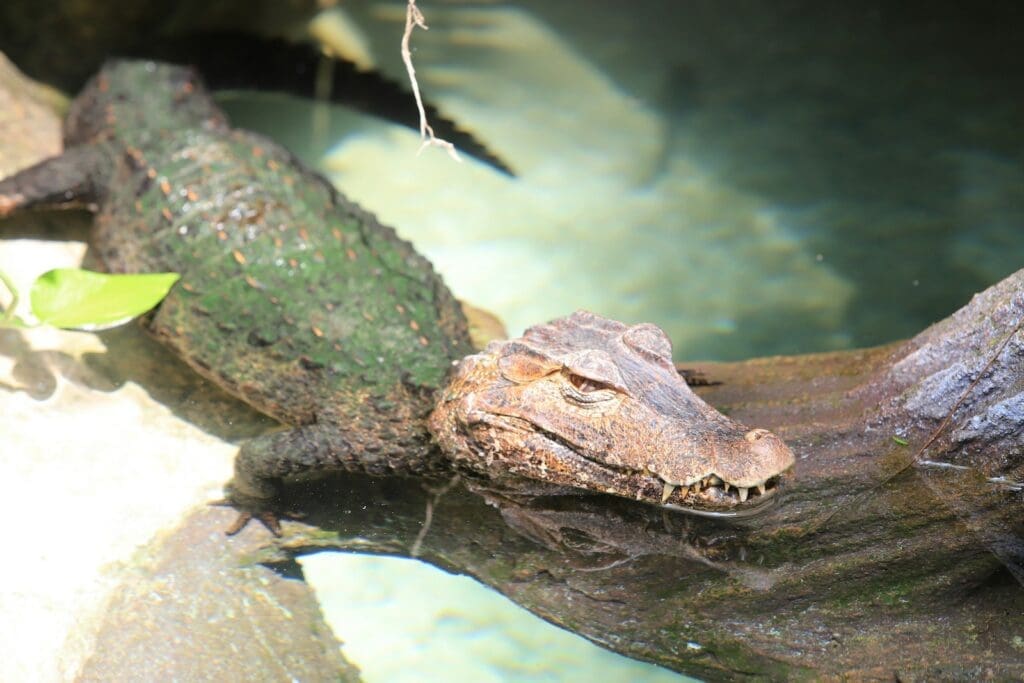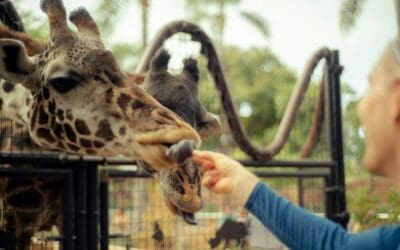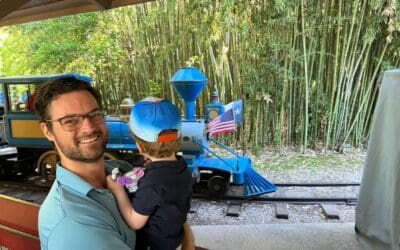
Unveiling the Wonders of Wildlife Education
Zoology, the scientific study of the animal kingdom, offers a fascinating window into the complexity of animal behavior and the rich tapestry of life that populates our natural world. Whether it’s a casual interest or a serious pursuit, understanding the intricate lives of animals enhances our appreciation for the diversity and adaptability of wildlife. For enthusiasts eager to expand their knowledge, educational series tailored to the unique field of zoology provide a unique opportunity to explore various species and their environments, opening up the world of wildlife science in an engaging and enriching way.
Wildlife education not only illuminates the workings of different ecosystems but also introduces aspiring zoologists and passionate wildlife observers to the critical role conservation plays in sustaining biodiversity. Through curated lessons that integrate hands-on activities with immersive talks, individuals can learn about the crucial research methods that allow scientists to observe and protect animals in their natural habitats and under human care. This foundational understanding is key to fostering stewardship of our planet and promoting a harmonious coexistence with the multitude of species that share our world.
Engaging with educational programs in zoology enhances the ability to recognize and interpret various animal behaviors, providing a deeper comprehension of the connections within ecosystems. Learning from experienced zoologists, enthusiasts gain insight into the day-to-day activities of wildlife professionals and the challenges they face. By delving into the study of animals, participants draw closer to the natural world, equipping themselves with the knowledge to advocate for wildlife and contribute to its preservation for future generations.
Exploring the Animal Kingdom
In the realm of the animal kingdom, there’s a rich tapestry of life that exhibits an extraordinary amount of diversity and complexity. From the depths of the oceans to the canopies of rainforests, a vast array of creatures contribute to the vitality of ecosystems around the globe.
Classifying Diverse Life Forms
The classification of animals is a fundamental aspect of zoology, providing an organized system to understand and study the immense variety of life. Kingdom Animalia is divided into numerous phyla, extending further into classes such as mammals, birds, fishes, reptiles, amphibians, and insects. Each class is then split into orders, families, genera, and species. For instance, amphibians are known for their life cycles in both aquatic and terrestrial environments, and reptiles are distinguished by their scaly skin and typically lay shelled eggs.
Observation and Ethology
Ethology, the study of animal behavior, is crucial for appreciating how species interact with each other and their environments. By observing animals, whether in the wild, in a zoo, or through educational series like Wildlife Wonders, one can learn about the feeding habits of whales, the migratory patterns of birds, or the intricate social structures of insects. These observations help to form a complete picture of how life adapts and evolves.
Habitats and Ecosystems
Habitats provide the necessary conditions for survival, such as food, water, and shelter, dictating which life forms can thrive in them. Ecosystems encompass complex interactions between organisms (like fish, reptiles, mammals, and amphibians) and their environments, from tropical rainforests bursting with biodiversity to the stark beauty of desert landscapes. Biodiversity within these ecosystems is critical; a wider variety of species ensures healthier and more resilient environments. Understanding the symbiotic relationships within ecosystems, such as those found in Disney’s Animal Kingdom, is key to the conservation of wildlife.
Conservation and Ethics
In the quest to preserve Earth’s biodiversity, the intersection of conservation and ethics plays a pivotal role. Ensuring animal welfare and adhering to ethical standards forms the backbone of modern conservation practices.
The Role of Zoos and Aquariums
Zoos and aquariums serve as vital centers for wildlife conservation and education. They are pivotal in protecting endangered species from extinction by providing them with safe habitats and participating in breeding programs. These institutions also support in-situ conservation efforts and research which is crucial for the survival of species in the wild. For instance, efforts like the Species Survival Plans are critical in maintaining healthy, genetically diverse animal populations.
Wildlife Conservation Efforts
Conservationists work tirelessly to safeguard various habitats and species, particularly those that are endangered. This may include protecting natural habitats from deforestation or pollution, advocating for laws to prevent illegal poaching, and restoring ecosystems that have been damaged. Effective conservation often requires a blend of fieldwork, policymaking, and community engagement to achieve long-term sustainability. Entities like the World Wildlife Fund are known for their global wildlife conservation efforts.
Ethnobiology and Ethical Considerations
When dealing with wildlife conservation, ethical considerations must be taken into account. Ethnobiology examines the way different cultures interact with and impact their local ecosystems. It’s important for conservation efforts to respect the knowledge and traditions of indigenous peoples and local communities. Ethical considerations also involve ensuring that sanctuaries and rehabilitation centers uphold high standards of animal welfare, treating all creatures with compassion and respect.
Interactive Education and Careers
For those passionate about zoology and wildlife biology, interactive education and career paths offer a wealth of opportunities. This section provides insights into valuable educational resources and potential career trajectories within this vibrant field.
Educational Resources for Aspiring Zoologists
Lesson Plans and Webinars: An array of lesson plans aligned with National Science Education Standards can be found through the National Wildlife Federation. These resources cater to high school students interested in life science and wildlife biology, providing a foundation for aspiring zoologists.
Zoology for Kids: Various organizations offer educational series and activities aimed at younger audiences. These include interactive experiences that engage children with the fascinating lives of animals, both in zoos and in natural habitats, nurturing a love for conservation from a tender age.
Career Paths in Zoology and Wildlife Biology
University Courses: For those seeking formal education, numerous online courses cover wildlife management, botany, zoology, ecology, and more, helping students prepare for careers as scientists, marine biologists, or even zoo curators.
Career Opportunities:
- Zookeepers: They are the hands-on heroes in zoos ensuring animal care, often requiring a degree in a related field.
- Wildlife Biologists and Conservationists: One may work in the field, conducting research and working towards the conservation of species.
- Specialized Scientists: A passion for particular creatures can lead to careers as an entomologist or herpetologist, among others.
Hands-On Experiences:
- Internships: These provide real-world experience, an asset for future veterinarians, wildlife biologists, or conservationists.
- Volunteer Work: Engaging in volunteer work at local zoos or with conservation groups can be a significant step toward a fulfilling career.
Engaging with Wildlife Beyond the Classroom
Diving into the world of wildlife outside of traditional learning spaces provides enthusiasts with the chance to solidify their understanding through direct engagement and multimedia resources.
Hands-on Experience and Fieldwork
For those looking to get hands-on experience in zoo-ology, participating in fieldwork can be incredibly rewarding. They get to apply classroom knowledge to real-world scenarios, such as tracking animal behavior or contributing to ongoing research. Programs often offer opportunities for observation and scientific data collection, which not only aid personal education but also contribute to conservation efforts. Activities might range from guided nature walks to more structured internships with zoological parks or wildlife reserves.
- Activities to consider:
- Guided animal tracking
- Habitat restoration projects
- Wildlife surveys and census
Multimedia Learning: Videos and Interactive Media
In today’s digital age, there’s a wealth of multimedia learning tools at one’s fingertips. Videos can provide a virtual window into habitats and animal behaviors not easily witnessed firsthand. Furthermore, interactive media such as games and activities on platforms like the National Wildlife Federation’s educational resources bring fun into learning, allowing one to test their knowledge in a playful manner. Scientific illustration and photographs of animals also offer the chance to study animals in detail, which can be especially beneficial for visual learners. These nonfiction resources can be found in a multitude of formats, from online webinars to educational documentaries like those highlighted by BrightChamps.
- Media to explore:
- Online documentaries about wildlife
- Educative webinars and virtual tours
- Interactive quizzes and wildlife-themed games






